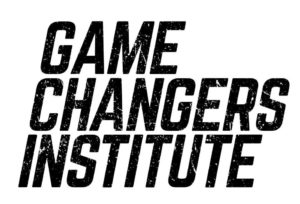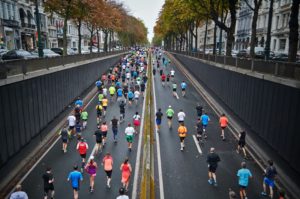
he Youth Charter is a UK registered charity and UN accredited non-governmental organisation. Launched in 1993 as part of the Manchester 2000 Olympic Bid and the 2002 Commonwealth Games, the Youth Charter has Campaigned and Promoted the role and value of sport, art, culture and digital technology in the lives of disaffected young people from disadvantaged communities nationally and internationally. The Youth Charter has a proven track record in the creation and delivery of social and human development programmes with the overall aim of providing young people with an opportunity to develop in life.
Specifically, the Youth Charter tackles educational non-attainment, health inequality, anti-social behaviour and the negative effects of crime, drugs, gang related activity and racism by applying the ethics of sporting and artistic excellence. These can then be translated to provide social and economic benefits of citizenship, rights responsibilities, with improved education, health, social order, environment and college, university, employment and enterprise.
The Youth Charter acts as a social broker and cultural interface between public/private sector and donor organisations. The key to the Youth Charter approach is to provide capacity, leadership and self reliance to hard to reach young people and their communities. This is delivered through our Social Coach training and development workshops, programmes and projects. Further assistance, campaigning, advocacy, support and advice is delivered through our ‘on-line’ distance learning and evaluation tools, which provide a unique impact and assessment of each individual’s and community’s ongoing development and progress.
Supported by over 250 Global Sporting, Artistic and Cultural Ambassadors and high profile social role models, the Youth Charter is pioneering new approaches to tackling the increasingly serious problem of anti-social behaviour amongst socially excluded youth.

Since the public release of The Game Changers (TGC) in the fall of 2019, an estimated 75M people in more than 190 countries have viewed the documentary on various platforms, including iTunes, Netflix, and Youku.
In addition to TGC’s mainstream success, the film’s scientific credibility has resulted in recognition from the American College of Lifestyle Medicine, the Academy of Nutrition and Dietetics, and the Defense Health Agency, as well as an endorsement from the Special Operations Medical Association.
In response to the success of film and the support it generated, the Game Changers Institute (GCI) — an initiative of the Game Changers Foundation, a non-profit public charity based in the Unites States of America — was launched early 2021 in order to help unite the performance, health, social justice, and environmental spaces under a single authoritative banner with the integrity and diversity to reach a global audience about the critical importance of a plant-centered diet.


Sustainability a ‘top priority’ for sponsorship activations
Samantha Lamberti of Nielsen Sports reflects on brands’ increasing preference to line up with sports properties that can support their environmental and social goals […]





EduSport (Education through Sport) is a community driven NGO founded in 1999 in response to identified gaps in opportunities for communities to participate in sport and for youth empowerment.
Edusport’s aim is integrating Sport into the Development process through its programmes. It combines sports and life skills training especially to socio-economically under served and at risk young people.
Edusport is found in 9 of 10 provinces of Zambia. It is currently operating in over 84 under served communities in 21 districts around Zambia. The organisation targets youths, trains them to become peer leaders, local role models and community mobilizers to drive change and spread the message of hope.
Go Sisters! programme
Go Sisters! is a programme launched in 2001 in Lusaka, Zambia to empower girls through Sport concept. It’s meant to allow girls to play, learn, exercise leadership roles, develop, discus, and have that space which is usually taken away from them. The programme is run by Girls for girls with girls. They also try incorporate boys so a way of raising a generation that will appreciate and respect each other.


Founded by Matthew Spacie in 1999, Magic Bus equips children and young people in the age group of 12 to 18, with the skills and knowledge they need, to grow up and move out of poverty.
This takes them from a childhood full of challenges to a life with meaningful livelihoods. Since its inception, Magic Bus has transformed the lives of one million children and young people, helping them move out of poverty.
Magic Bus developed a life skills programme that aims to connect underserved children to vocations through sport.


United Through Sports is an alliance of many organisations working together through sports to bring unity and peace to an often-divided world. UTS is actively supported by the IOC, GAISF SportAccord and AIMS for the trust granted to us in coordinating this much needed initiative.
United Through Sports brought world renowned personnel to one round table in 2018 at the inauguration of UTS during the SportAccord Convention in Bangkok. The opening conference showed the importance of working together as one and the three day festival is an affirmation of our youth looking to us not only for guidance but reminding us all about our duties and the impact our decisions have on their future.


Youth Charter calls for #LEGACYOPPORTUNITY4ALL on its 28th anniversary
Today not only marks a year since the first national lock down, but also the 28th Anniversary of the Youth Charter.After three decades of […]




United Through Sport (UTS) is a UK registered development through sport charity helping disadvantaged communities reach their full potential in sport, education and health. We do this in Africa, South America and will be launching in Asia soon.
UTS are committed to using sport as a tool to develop disadvantaged and vulnerable youth by:
- Using direct sports coaching – for its health benefits, improved emotional well-being and increased life skills (teamwork, leadership, decision making, communication).
- Using sport to discuss critical issues – by delivering curriculums on topics such as HIV/AIDS awareness in a fun and interactive manner on the sports field.
- Using sport for improved education – by providing pathways to success for talented and dedicated individuals through scholarships to top local schools and tertiary education.
United Through Sport supports two core programmes, built up by a number of projects in each country they work in. The first is a Mass Participation Programme which gives thousands of disadvantaged kids the chance to play and enjoy the sports they love. The second is the Schools of Excellence (Junior and Senior) programme which provide top-level coaching and academic schooling for aspiring athletes.
United Through Sport is built on a clear pyramid structure. The Mass Participation Programme forms the bottom tier, the Schools of Excellence forms the second tier, and the careers in sport forms the top tier. All their work, donations and volunteering go into supporting this pyramid structure.


Field of Greens: The Green Sports Alliance Foundation and the newly launched Game Changers Institute join forces
Together, the two institutions will establish a new plant-based recipe for linking climate action with performance nutrition in sports. PORTLAND, Ore., March 25, 2021 /PRNewswire/ — The […]


The Active Well-being Initiative is a non-governmental organisation founded in 2017 who promotes physical activity, Sport for All, sustainable health and well-being.
The AWI is a unique platform designed to create and encourage international cooperation opportunities, integration and implementation strategies, established programmes and institutional models. The AWI hosts, manages, and promotes federative reference frameworks and recognition schemes in the field of well-being and sustainable health. The AWI enables cities to enhance the well-being of their population, while receiving international recognition for their progress through a certification process. Citizens are empowered and engaged in order to adopt a more active and healthy lifestyle.
AWIs' approach and methodology is based on international standards and tools, and supported by a network of field experts. As an initial step in 2017, the AWI launched its first label, Global Active City, leveraging on physical activity and sports to enhance individual and collective well-being.
Moving forward, the AWI and its partners continue to develop a more holistic approach which encompasses more dimensions and drivers of well-being, such as healthy nutrition, mental well-being, personal coaching, culture and art.
Through the AWI model and suites of tools and services, cities are encouraged to move further away from the current, largely pathogenic paradigm to adopt a new approach based on the promotion of active and healthy lifestyles and environments. They may start their journey by joining the AWI as a Partner City and adopting the Global Active City framework, implementing the corresponding management system, establishing a strong alliance and a number of new initiatives, defining clear roles and responsibilities to ultimately achieve the proposed internationally-recognised certification. Alternatively, and in the near future, cities may also decide to adopt a more rounded and multidimensional approach to well-being and follow the model proposed by the Global Well-being City label. In addition, such a model will also be proposed to organisations (private, public, for profit, NGOs, of all sizes and nature) which decide to adopt a more proactive, healthy and active workplace approach for their staff, members, participants, visitors or customers.
